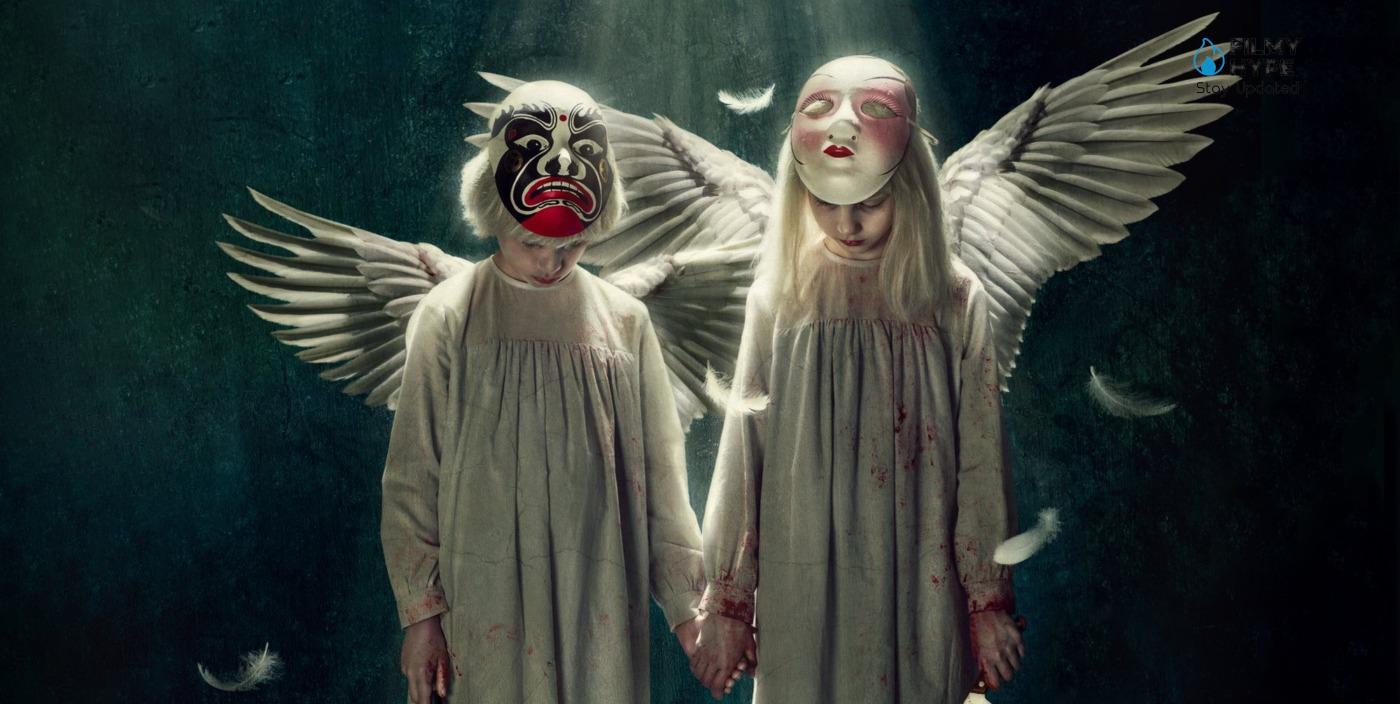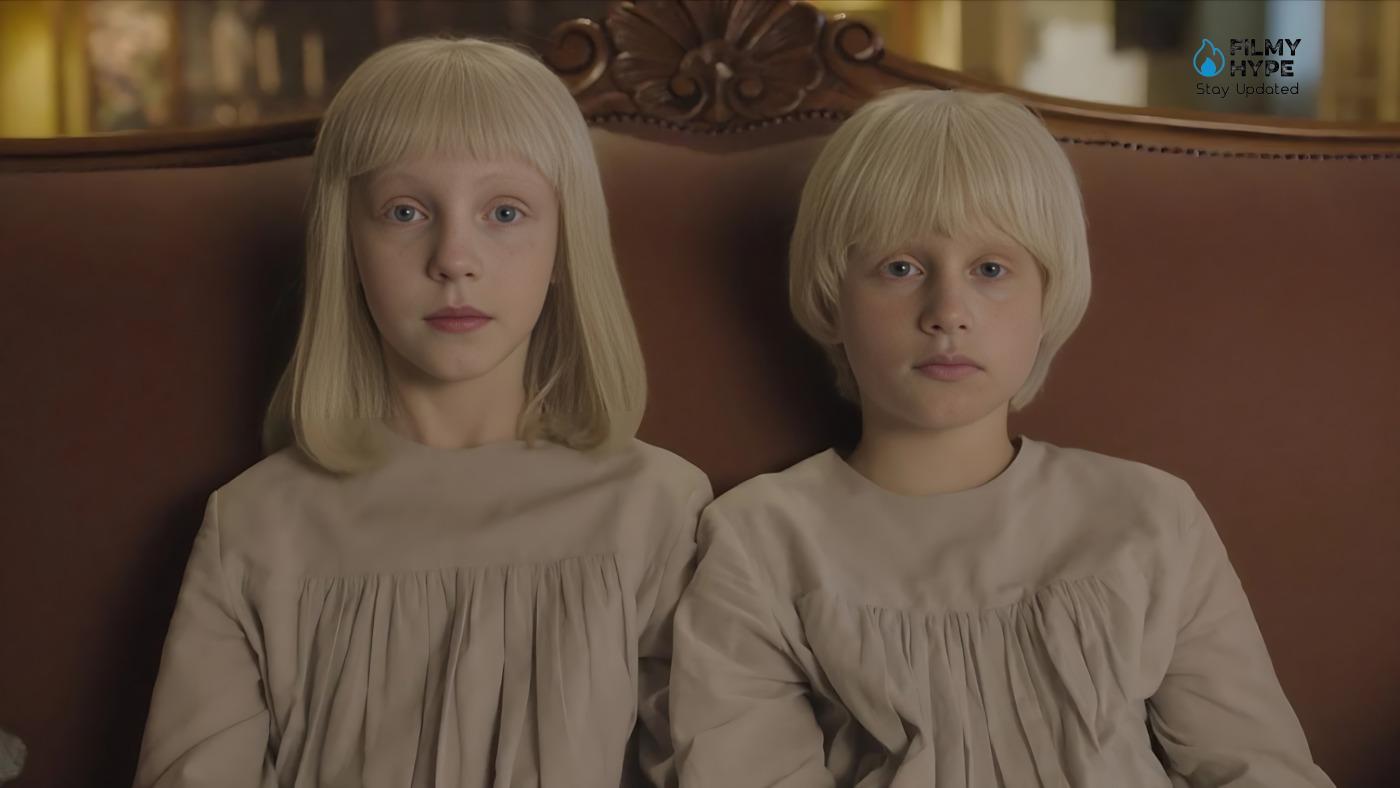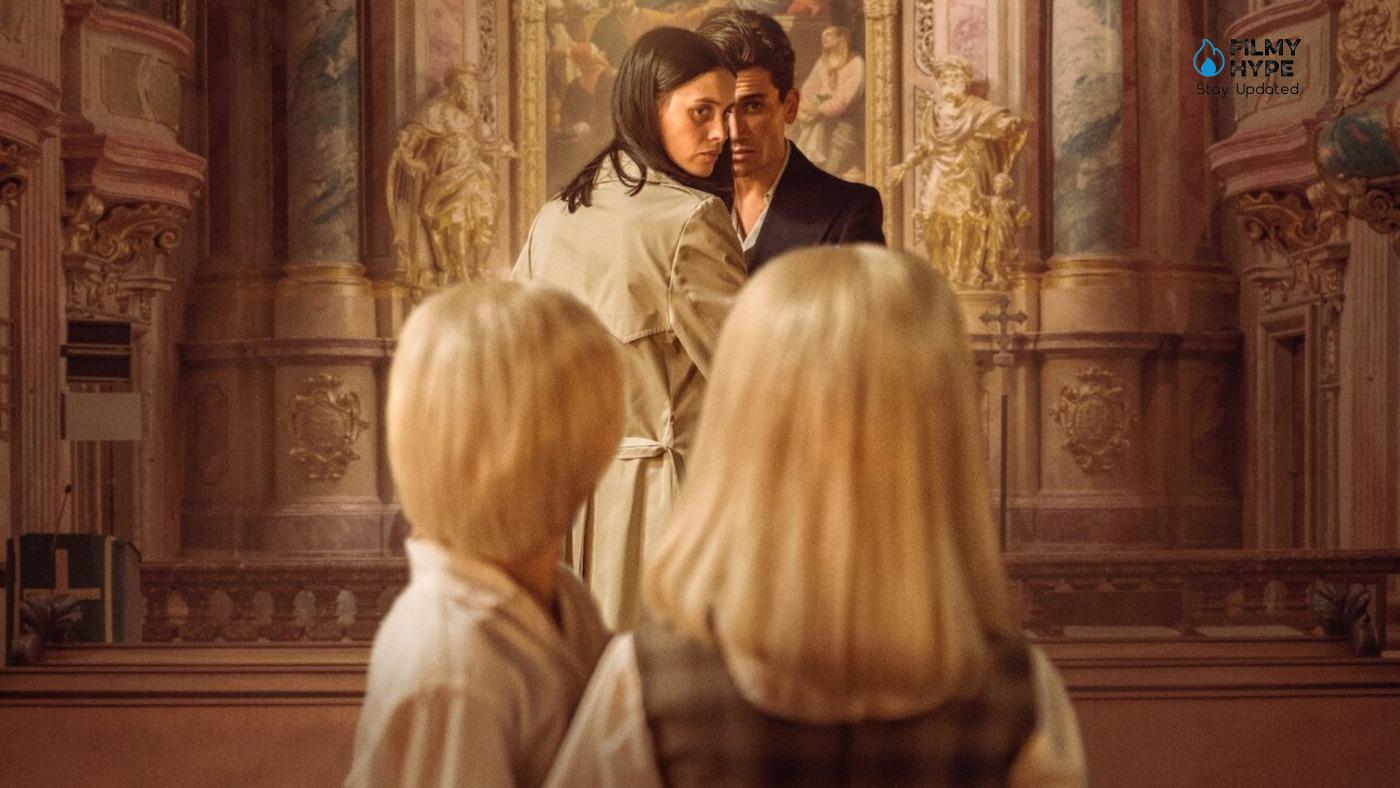Tin and Tina Review: A Visual Masterpiece Filled with Memorable Imagery | Tin & Tina
Cast: Milena Smit, Jaime Lorente, Anastasia Russo, Carlos González Morollón
Director: Rubin Stein
Streaming Platform: Netflix
Filmyhype.com Ratings: 3.5/5 (three and a half stars)
Tin and Tina (Tin & Tina) is at the top of the ranking of the most viewed films of the week on the Netflix streaming platform: it is the new psychological thriller by director Rubin Stein, a Spanish production, which sees in the cast the well-known face of Jaime Lorente (Denver in Money Heist) alongside Milena Smit, as well as two very young – and promising – protagonists, Carlos G. Morollón and Anastasia Russo. Taken from a previous short film by the same director, the film develops an interesting plot, which places family dynamics and the relationship of human beings with religion at the center of the narrative. Except for a few horror-tinged sequences, the film is not attributable to the genre, but it is a feature film that has stimulating ideas.

The horror genre has been dealing with various aspects of motherhood since the 1950s because being a mother is not an easy task. We’ve seen a rise in this sub-genre in recent years, with storytellers examining how the concept of parenthood is evolving across the economic spectrum. Unwelcome saw Hannah John-Kamen take on goblins and rude Irishmen to protect her newborn. M3GAN envisioned a future where children are likely to be looked after by AI-driven ‘toys’. Alyssa Sutherland expressed her maternal frustrations through a demonic entity in Evil Dead Rise. And now, Tin & Tina seeks to explore the intersection between religion, adoption, sexism, and the act of being a mother.
Tin and Tina Review: The Story Plot
Spain, Eighties. A young married couple is about to become parents, but just shortly after the wedding ceremony, Lola (Milena Smit) suffers a miscarriage, which severely damages her womb. The woman is told that it will no longer be possible for her to become a mother, and, after some initial hesitation, Lola lets herself be persuaded by her husband Adolfo (Jaime Lorente) to go to a convent of nuns who hosts a community of orphans to adopt a child. Although Adolfo thought of adopting a newborn, his wife was struck and in a certain sense fascinated by two brothers, Tin and Tina, whom she heard playing the organ wonderfully inside the chapel. The two little boys are two unusual characters, almost borderline, skinny, and albino. The couple takes the two children with them, but the arrival of the children in Lola and Adolfo’s house seems to be a harbinger of further misfortunes.
Tin and Tina Review and Analysis
Some sequences follow the suspense and atmospheres of extravagant horror like Orphan the mood is the same, the “stranger” person who is welcomed into a family nucleus and proves hostile to it – but Stein’s film nonetheless remains a film, not exactly fitting in the genre. The screenplay presents an intriguing basic plot because it aims to talk about religion from the point of view of fanaticism: the two little protagonists received such a rigid religious education at the convent where they had been taken in as orphans that they were obsessed with concepts and ideologies such as divine punishment, God’s wrath, sin and the idea of having to follow a series of rules, dogmas, and precepts throughout their daily lives. In short, evil – Rubin Stein seems to want to tell us – can also come out of creatures that seem the purest and most innocent of all, even from an excess of zeal and hiding where everything seems to be aimed at good intentions.

And yet, despite the attempt at psychological and social investigation carried out by the director with the feature film, Tin & Tina easily gets lost in some clichéd scenes, not having its three-dimensionality or even real originality to be able to consider itself “one of the best films of the year on Netflix”. In the film, for example, the tension – bordering on sexism – between husband and wife is highlighted, but we don’t delve deeply and at the end of Lola’s story we realize we know little, and nothing. Although the screenplay could have dared more and described the psyche of the main characters more thoroughly, above all by giving more background to the two brothers (very good, together with the rest of the cast) and their past in the convent, the feature film has a production and a post appreciable production. Rubin Stein is a skilled and captivating directorial, Alejandro Espadero does a good job as a cinematographer and Jocelyn Pook’s music goes well with the general atmosphere of the film and individual scenes.
The question that naturally arises as the narration progresses is the one concerning the true nature of the orphaned twins: are they innocent children who interpret the Bible too literally or are they evil beings who use sacred texts to justify their actions? Rubin Stein’s film plays a lot in instilling this doubt in the viewer, which is the same one that grips Lola as soon as the children’s extravagant behaviors begin to seriously endanger the lives of family members. But, despite the horrific gestures that the two perform, Tin & Tina insist a lot on the fact that the twins are victims themselves, misled by the rigid Christian teachings imparted to them by the nun who took care of the little ones in the convent.
With Tin & Tina, Rubin Stein presents a rather disturbing – at times disturbing – picture that looks not only at religious fanaticism but also and above all at motherhood and the anguish that can accompany it. Lola experiences a deep inner conflict throughout the film: on the one hand, she begins to love these two children abandoned by everyone, who shares the fact of being orphans with her. On the other hand, no matter how hard she tries, she struggles to see the good in them because the behaviors they put in place go from being wrong to sadistic and wicked. At the same time, the woman still suffers terribly from the loss of her twins, and she finds it hard to recognize herself in the role of mother, having lost the children she was carrying. The question, therefore, arises: Does Lola care for Tin and Tina despite everything because she loves them or because she desperately wants children?

This inner struggle of the woman – which becomes the same as that of the spectator – is what most carries forward the film, which at times appears a little too far-fetched since it is not a supernatural film; particularly in the way in which two seven-year-olds manage to keep two adults in check who, by contrast, have rather too mild reactions to terrible deeds. The young actors Anastasia Russo and Carlos González Morollón are perfect in the role of the twins, managing to convey a deep sense of unease that grows gradually as the narrative proceeds. The same goes for Milena Smit, who leads her character to make a profound physical and mental transformation as if her pain and frustration were gradually imprinted on her face. More marginal, on the other hand, is the role of Adolfo played by Jaime Lorent: but it is the husband’s character himself who plays a collateral function within the couple, assuming that it is the wife who has to take care of the children and not worrying about them in the slightest.
Tin and Tina Review: The Last Words
Tin & Tina is a bold horror film, which combines the themes of motherhood, religion, and sexism with a touch of terror. Despite the 80s setting, the film speaks to modern generations fighting against patriarchy. Director Rubin Stein, with an outstanding cast, explores the dark side of religion and societal expectations of motherhood. Protagonist Lola’s adoption of creepy twins catalyzes a series of frightening and tragic events. Despite some difficult moments, Tin & Tina is a film that invites reflection and remains engraved in the mind of the viewer. Recommended for horror fans. For me, it deserves an 8. Tin & Tina analyzes on the one hand the conflicts and anxieties that motherhood brings with it, on the other questions the viewer on the meaning of wickedness. Too bad that, at times, the film seems a little too far-fetched, despite not having a supernatural nature.






